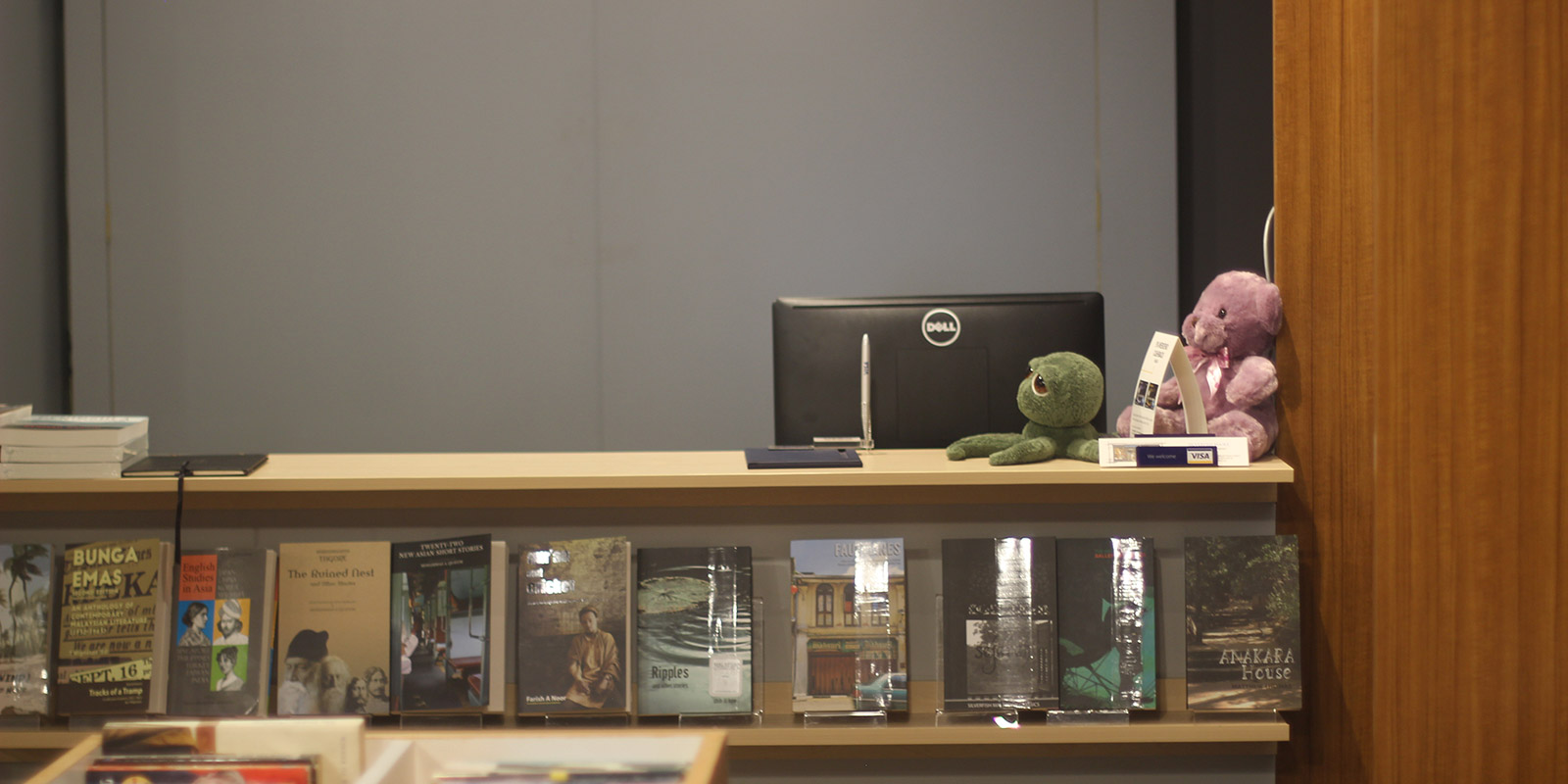Silverfish Books + Nesa
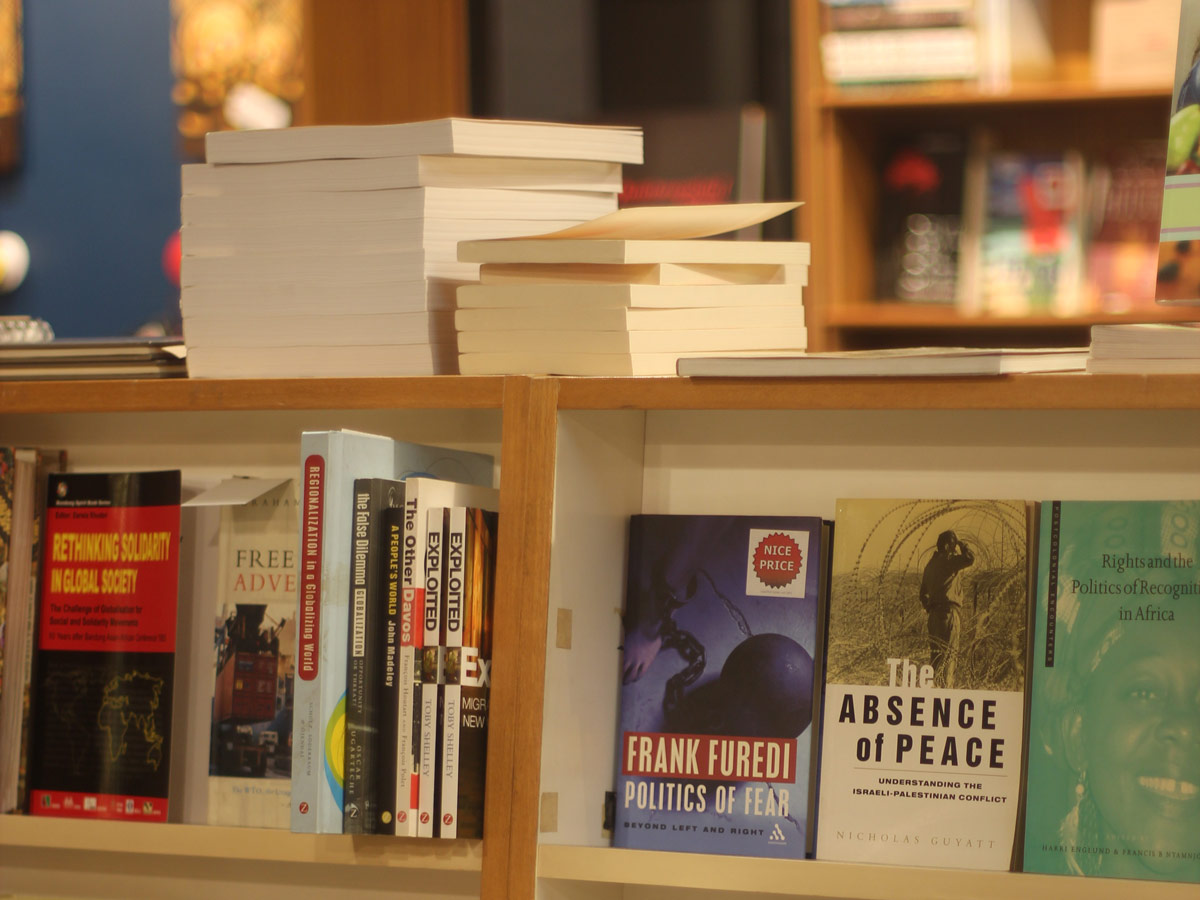 Thirsty for JUICE content? Quench your cravings on our Instagram, TikTok and WhatsApp
Thirsty for JUICE content? Quench your cravings on our Instagram, TikTok and WhatsApp
Text + Images Rathika Sheila
Shop
Silverfish Books
Malaysia Truly Asia
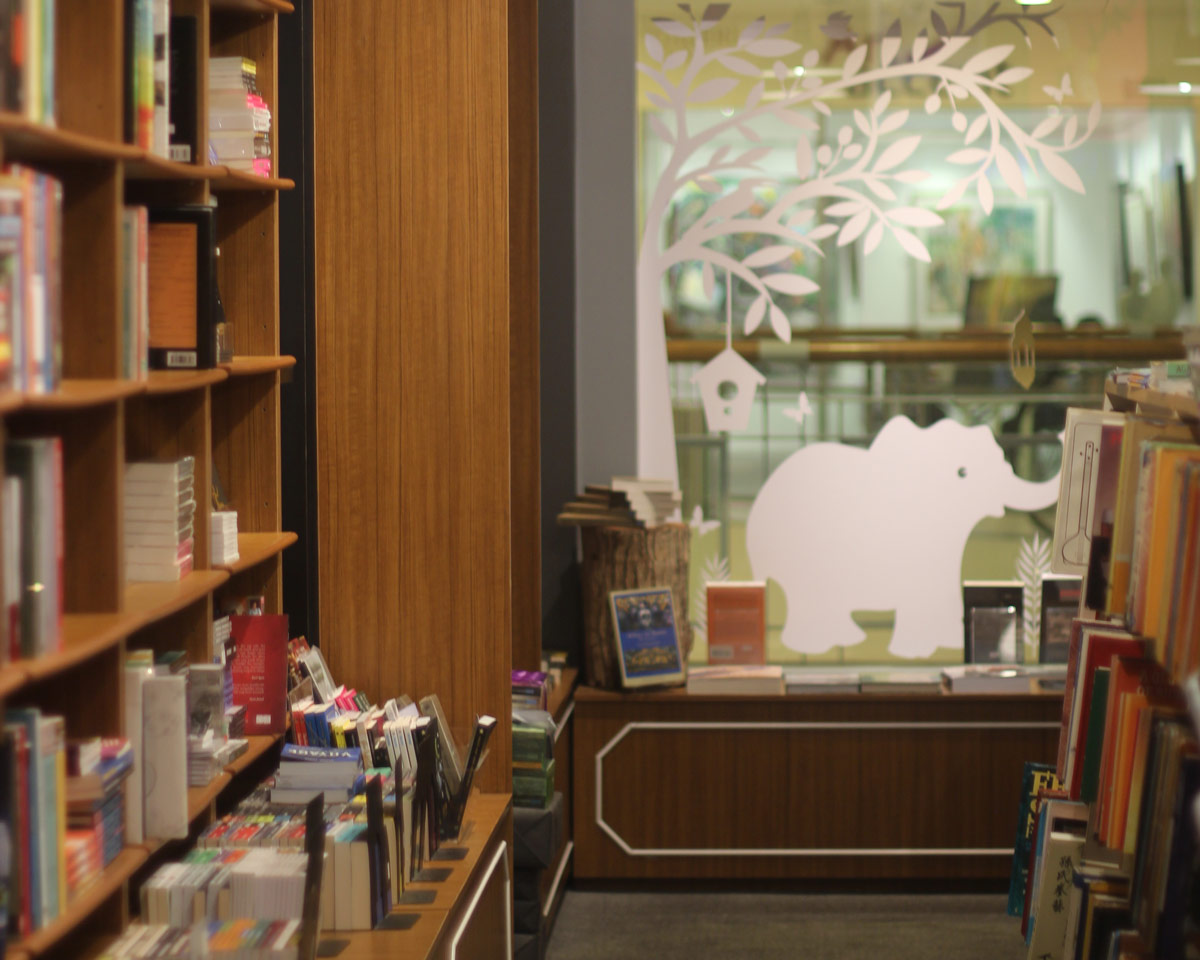
Sometimes when something isn’t widely accessible to customers, it breeds a mindset that said product isn’t available, which then leads to the idea of it not existing in our market. But like most treasures, while it takes a little longer to find, the rewards will be colourful. Silverfish Books is located in a gentrified area that can be easily overlooked by the bigger franchises and brands around it, though having been around for over a decade, it goes to show that there’s more to what they have to offer than fast-moving bookstores.
Silverfish specialises in all things Malaysia – the history, short stories, fiction, poetry – and most importantly, it celebrates Malaysian authors. Here, readers will be treated to a diverse lineup of stories that we may never have known existed in our country. While currently on a mission to provide a platform for Malaysian writers and to popularise Malaysian stories, The bookstore-cum-publisher is also working on republishing stories that have gone out of print; titles such as Merong Mahawangsa, Sejarah Melayu, or books written by Hugh Clifford – the namesake of many a school in Perak and Pahang – during this country’s era of British colonialism.
Silverfish is also learning grounds for aspiring authors and poets to seek creative refuge as the publishing arm of the bookstore hosts workshops that tackle typical obstacles and mainly to give lessons on how to be better writers. A visit here will be highly beneficial to all.
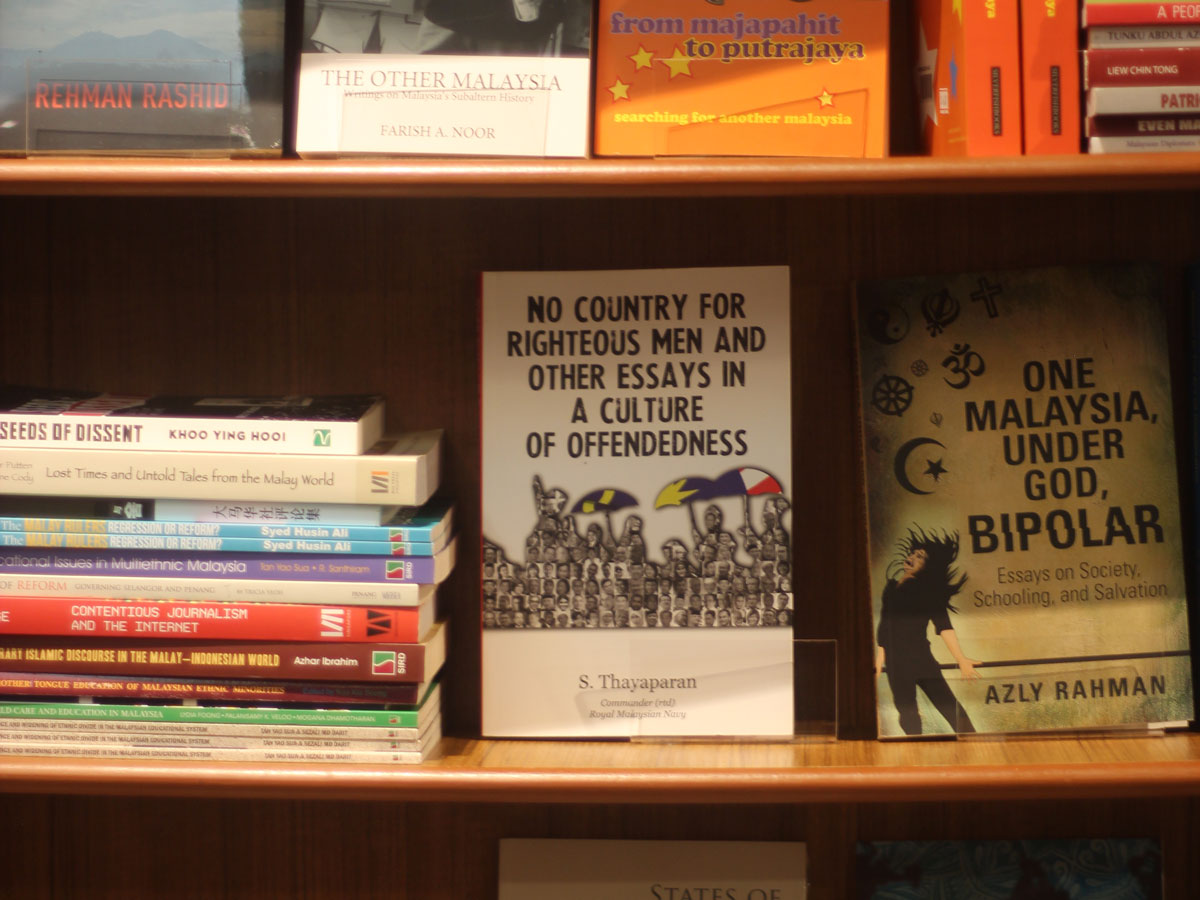
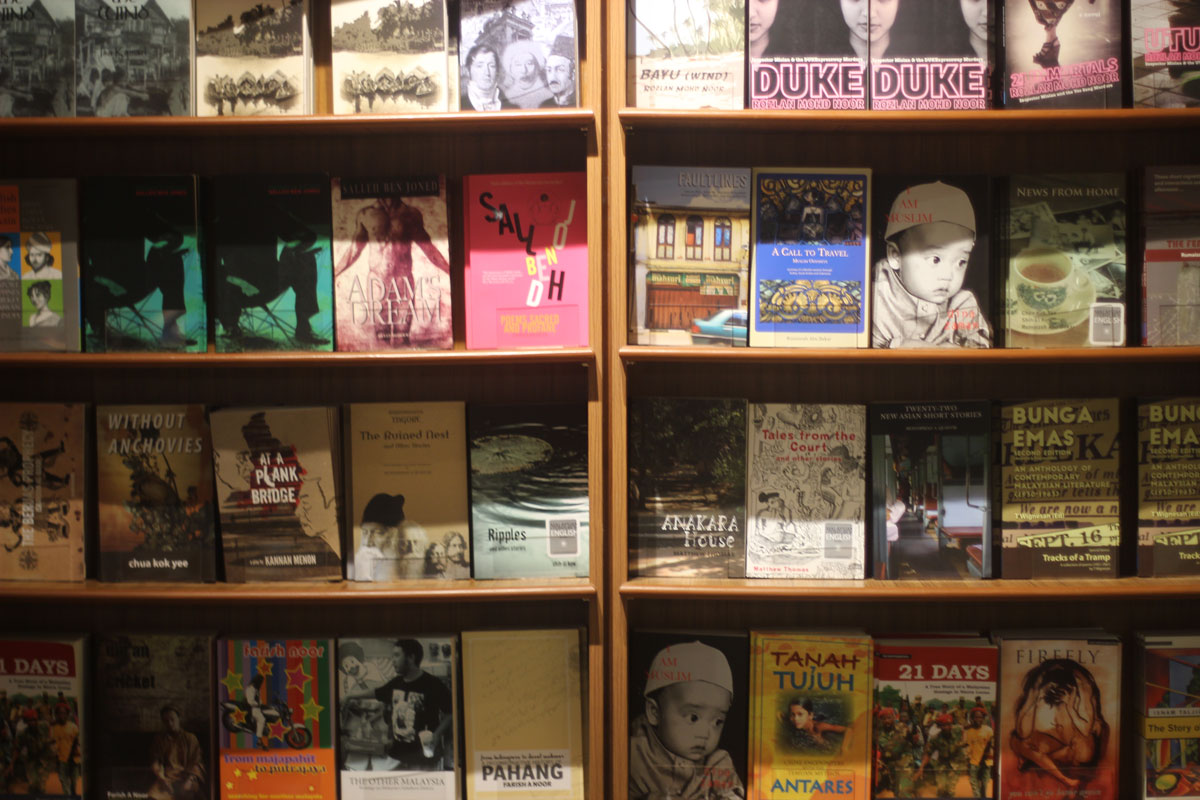

Silverfish Books is located at 20-2F, Bangsar Village 2 (Second) Floor, Bangsar Baru, 59100 Kuala Lumpur.
O: 10am — 10pm (Daily)
T: 03 2284 4837
E: [email protected]
Owner
Nesa
YA Advocate, But Not Twilight

After a tour of Silverfish Books, it was then time to get to know one of the bookstore’s backbones – Nesa. The first attribute that came to mind upon meeting Nesa was reticence; she seemed like someone who was unimpressed by many things, someone who didn’t break her focus all too quickly, but the second the topic of books was laid on the table for all to discuss, the quiet lady became theatrical with her gestures and excited to share her knowledge — while dropping a couple of pop culture references in between. JUICE spoke to the Law graduate-turned-Editor of New Straits Times to now managing a bookstore that has more Malaysian gems to offer than any jewellery store.
Let’s start with a generic question. As a bibliophile, how many books do you own?
Close to 10,000.
Where do you find space for that?!
(Laughs) I’ll find it! All the walls in my house are lined with books.
Do you have a catalogue to remember all that you have?
No, I don’t have one but I know where everything is — if you moved a book, I’d know, so, don’t do that.
Are there any genres in particular that you enjoy reading more than others?
I’m pretty Catholic, I’m very experimental and I have a small pool of friends that recommend books to one another – Raman (the founder of Silverfish Books) is one of them and I’ve read so many books that I really would not have picked up by myself but I did because of Raman. I like many genres — sci-fi, fantasy, horror, Asian writers, and I know it may not be hip but I really like the stuff they’re writing for young people these days.
Which are some of your favourite Young Adult titles?
There’s Neil Gaiman, I like Francis Hardinge — lovely lady with equally lovely books — I like Patrick Ness, I think they made a movie out of A Monster Calls — it was one of the best books I read in that year. I read it in one sitting and couldn’t stop! There are so many, many amazing books and I don’t understand why people aren’t going out there to read them all.
We were just about to ask you a question about that! So, what do you think of the reading culture in Malaysia, as an editor and a bookkeeper?
Our experience is going to be a little bit different because the nature of this bookstore is very different. First and foremost, we have a focus that [other] bookstores don’t have. We carry a lot of Malaysian books — whether it’s for children or adults — we have people coming in here asking, “Oh! All these are Malaysian writers? Oh, we have books?” And it’s a strange feeling because the books are good and they deserve to be read. We also have foreign books but we’re selective. You’re not going to find a best-seller here because everybody’s doing that, so, we try to introduce you to other writers and the other thing you get here is that we have read all our books. So if you want a recommendation, you’ll get a real one because the person recommending it has actually read the book he or she is talking about. And I think if you can do that, people will read.
Is it easy to persuade new customers to buy books written by Malaysian authors when their library consists of mostly popular Western authors?
When people come in here and are unable to find the latest book by Stephen King, we then engage with them to ask what books they like, what they’re looking for, and nine times out of 10, you can convince them to buy a Malaysian book if you can tell them the story. And credits to Malaysians for being willing to give it a chance at least.
“If you’re going to enter any course in University, that’s what you’re going to need; the skill in a language, the broadness of thinking, the ability to take your mind and go anywhere.”
The reading culture for customers that come here sounds great, but what do you think of it as a whole?
As a whole, I do think we have a problem and I think it’s got to do with the value we place on reading. I’ve actually heard parents that say, “Oh, so much money, it’s got pictures in it — nevermind, you just sit here and read. When you’re bigger, we’ll buy you books with words in [them],” or, “Nevermind, we’ll go watch a movie. Yeah, it’s just a storybook, it’s not going to get you a job, it’s not going to get you in University.” That shouldn’t be the value, and that’s not going to broaden your mind or your imagination — if you’re going to enter any course in University, that’s what you’re going to need; the skill in a language, the broadness of thinking, the ability to take your mind and go anywhere.
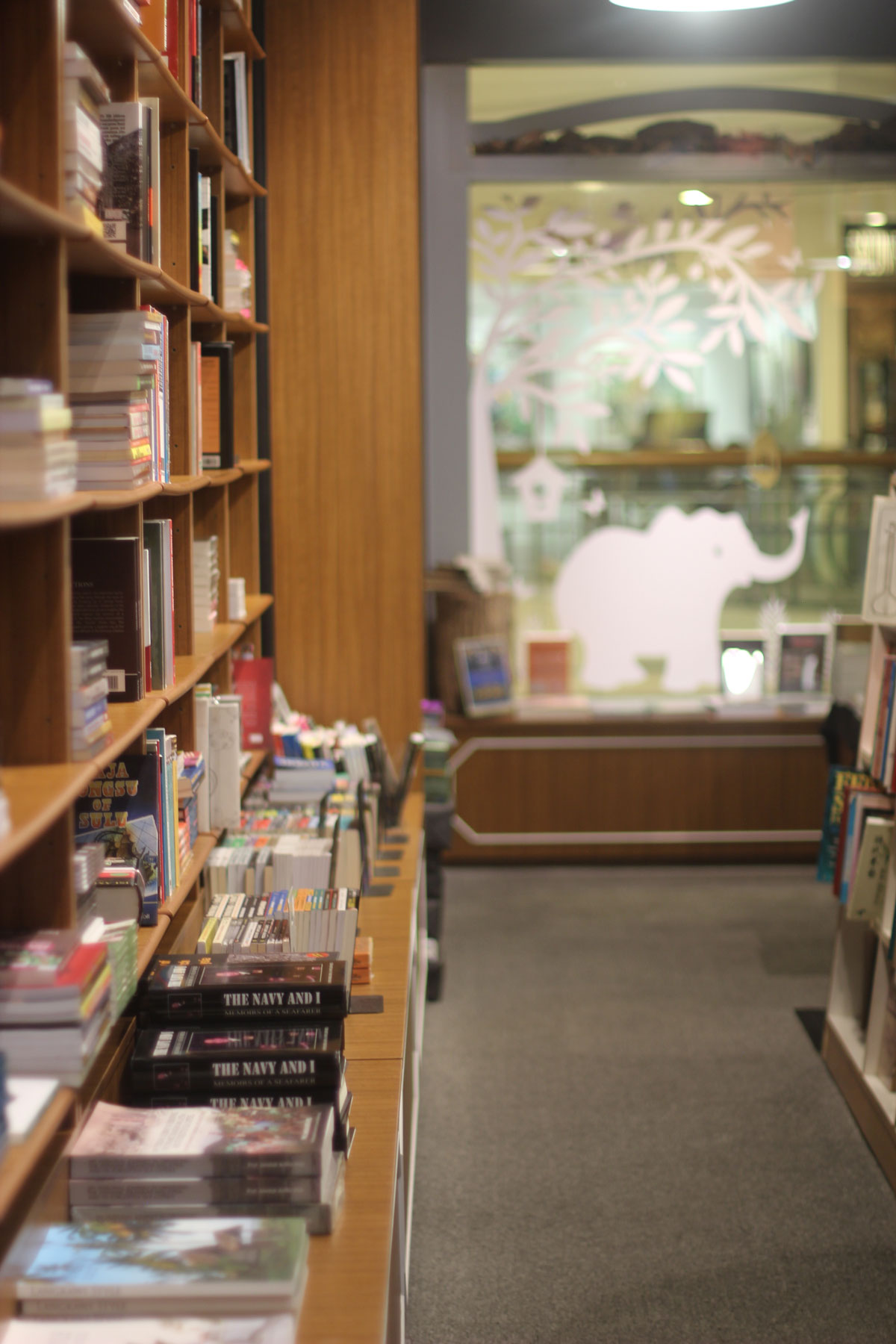
What course did you pursue?
I’m a lawyer. I never practised, I liked studying Law because it was about words (laughs) — and my Criminal Law lecturer is a great fan of the classics. Invariably, you’d get a question or two in the Crime paper that was based on a book, and you’d get bonus points if you could identify where it was from. So, the first term exam, it was a scene out of Hamlet — where Hamlet stabs through the curtain not knowing who was behind it but hoping it’d kill his uncle — that was the question in my class, “If you intended to kill one person and by accounts you killed another person, what happens now?” And the bonus was, “Where did the scene come from?” And I remember after that the library just being jammed out with Law students. So, you see, you just don’t know when it’ll be helpful and when you can use something that you’ve read in real life, in your work, and even like this — you just don’t know. Like even you, you’re a writer, I’m sure you get inspiration after reading.
Of course, we need to read more to be able to write better.
You’re right and I wish people would realise that. You’re only as good a writer as you are a reader. You can’t do what a lot of young writers are doing now — you read Twilight and you want to write another Twilight — but all they have read is Twilight (laughs), and that you can’t do. You need to read more from the genre and find a new angle. Don’t produce the same thing.
“If you want aliens to come here, that’s fine — aliens have landed everywhere, including the White House — but let’s have you put your spin on it.”
As an editor, how do you ensure the work that you edit does not sound or has a different voice in comparison to the next book?
To be very honest, there’s probably nothing that hasn’t been done. We are humans, we have limited experience in life, beyond which it’s just not going to happen. Even when you talk about imagination, it’s been done — you want to go to Mars, you want to go to the moon, but what you need to do is put your spin on it. Give your voice to it. If you want aliens to come here, that’s fine — aliens have landed everywhere, including the White House — but let’s have you put your spin on it. It’s not that every award-winning writer is coming up with an idea that nobody in the whole world has come up with before, but they’d put a spin on it. Like the Man Booker Prize winner, Han Kang, the author of The Vegetarian — a lot of people have written about wanting to save the planet, and so did she, but her character wants to be a plant (laughs). You also need to write about something that you have an understanding of.
That’s very interesting…
If you’ve not read widely or set foot in the desert, then, be very careful if you want to set your novel in the desert because somebody will figure out your [error]. If you want to write about a period in history — yeah, you don’t have to live it but you need to understand it. Neil Gaiman and Jeffrey Reiman once told me that they get really upset when people mess with a city because it’s your city — you know it and love it. So, you’re happily reading the book, there’s a chase, they get into a train, they get out of the next stop, they run down the street and turn down a corner, and you’re reading it like, “No, you can’t do that, there’s a wall there.”
Hold up. When you say “told you,” did you meet them?
Yes! I was educated in England, and started attending sci-fi and fantasy conventions — now it’s been a good 20-plus years since I first went and I still go every year. It’s great because it’s a place you can go and be comfortable in your own skin. You can be in costumes and no one will judge you.
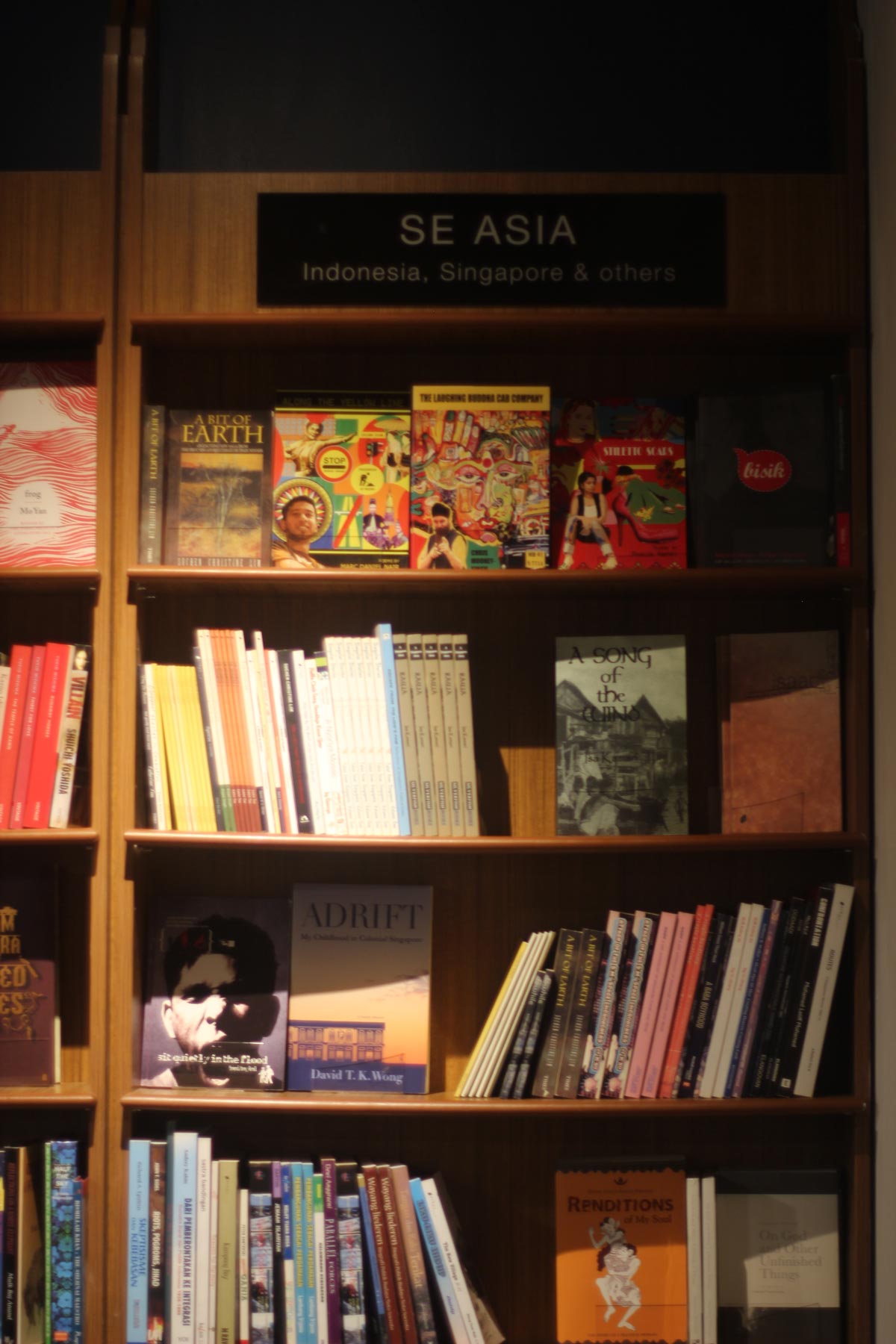
“Reading the Satanic Verses won’t immediately make you doubt the religion you practise.”
That’s very cool! Speaking of judgment of subjects we don’t understand — the banning of books, though not often, has happened here before. What’s your opinion there?
I don’t think books should be banned. I think the direction you need to take is to educate people. And given enough information, the average human is quite capable of making sensible decisions. Reading the Satanic Verses won’t immediately make you doubt the religion you practise. After all, you are a thinking human, you shouldn’t go on a book burning spree after that. We’ve been republishing old books, as I mentioned earlier, it’s part of our culture — you can’t wipe it out, you have to know where your roots are. This is where you came from, this is what your country was built out of, you can’t forget or whitewash history. If you don’t want to repeat the past, you have to know the past. You can’t pretend and take it away.
Ah, but Malaysian history textbooks beg to differ!
Which I think is very wrong because history should be left as it was.
Why do you think it’s sensitive here?
Normally, the people making a fuss are a minority but they make a lot of noise and there’s very often some threat or violence behind it, so, in order to play safe, we give in. Then you say there’s a young generation who’s disconnected but why are you surprised? You’ve stripped away the anchors; they have no roots, or heritage, or culture. When you talk about young people, you hear words like ‘hipster’ — there’s nothing rooted anywhere. It’s all fleeting. You don’t teach them to read, they don’t know anything about where they came from; everything looks exciting from “over there” but when you go over there, they think you’re awesome because you come from a culture that’s older than everybody else’s, except you don’t know it because you’ve been busy wiping it out.
Yeah, there is a certain romanticisation of the grass being greener on the other side.
You want that height of achievement of civilisation and you think you can do it if you leave the old behind, but you forget that they are much older than you; they’ve been through all that we are going through now, they’re telling us to save our forests because they’ve destroyed theirs and they know what that feels like. They’ve lost much of their culture, they know what that’s like, so, now they scramble to save it, but you don’t have to do the same, do you? You have the advantage of modernity, science — you’re in the perfect place to make a blend [of modernity and culture]. You don’t have to give it up. I really admire women who still wear sarees, and people who use batik for different things.
But let’s say people use history or culture for the sake of using it — doesn’t it become a bit of a novelty then? As in, they don’t really know the history of what it is they’re using but because it invokes a sense of nostalgia, they capitalise on it.
One way to look at it is saying you can’t do it unless you understand it and the other one is let it go on and hope that somewhere along the line, interest comes in because there’s only so far you can run with pure gimmick. There’s going to be a point where it doesn’t work because it’s only with understanding that the ability to continue doing something is going to come. So, if you’re going to continue using batik — let’s be blunt, to make money out of it — you’ve got to understand the culture and heritage.
You’ve mentioned “young people” a few times, we’re curious, how old are you?
The age people think I am or the age I really am?
The age you really are would be nice.
You can do the math — 1969 — because I don’t remember. I stopped growing older at 33. It is the number that I like. In about a year or so, I will become 42 and stay 42 — 42 is a good number because it’s the answer to everything in life.
Ah, Hitchhiker’s Guide to the Galaxy! You best have a cup of tea by your side too.
That’s right. There’s always time for tea before the universe ends.

So, have you published any of your own stories?
No, I’m a reader. I’ve not read enough to write…
You have 10,000 books.
Yes, but that doesn’t mean that I’ve read enough to write. Not even write close to the people whose writing I love, but I am an editor – and I think I’m a pretty decent editor and I’m going to work on becoming the best editor. I like looking at stories, nudging it along, and bringing someone’s voice out.
“The young people come in now and they think it’s not going anywhere but if they’ve seen how far we’ve come — now it’s your turn.”
So, your first job was with New Straits Times, were you working during the censorship changes in our press?
Of course! When I started in NST, I did the leader page and everyday we’d have to send it to the Prime Minister’s department, so somebody would approve it — or not, as the case may be. You’ll get a ridiculous phone call with the list of amendments but now we have [alternative] outlets like Malaysiakini. We have come a long way. I know young people get frustrated but they have to understand that people like me have been fighting for 20 years, and for us the change is huge. The young people come in now and they think it’s not going anywhere but if they’ve seen how far we’ve come — now it’s your turn. You need to take the fight and go on. It will change but you’ve got to keep going. The fact that America is where it is now didn’t happen yesterday — look at the amount of history they’ve got under their belt. Or India, even. It’s taken them a long time. But most importantly, stick with it.
Yeah, there’s a growing trend of being the Jack of all trades but master of none.
Exactly. Being a writer is not that you’ve published one short story or one poem, it’s about consistently doing it. Yes, you might face rejection but keep on at it because there will be a point where the ‘no’ will become a ‘yes’. If there is a heart in the story, it can be developed and it can be grown. Nobody writes in a vacuum, okay? I know plenty of people think there’s a magic world out there where you’re like George R.R Martin, publishers line up and just take it — no, Mr. Martin has an editor, he makes changes, he makes revisions.
When do you know that the work you’re editing is ready?
You read a manuscript and you think there’s something in this story — it’s there. It just needs some work. Of course, there are some broad rules like logic. There must be logic. You must have characters that the reader can identify with and feel with, otherwise there’s no point. You must care enough about the person you’re reading about to want to go through his or her story with them, so, if you don’t have logic, it’s not going to work. You may be writing about people who live under the carpets – it better make sense! The fact that you’re writing about something unusual doesn’t mean logic goes out the window — it has to hang together. Don’t do things for the sake of shocking, that has value for about two seconds and then it’s gone. If every single one of your books is like that, you’ll become a writer nobody wants to read. So, I’d say this to all writers; read first and read wide. If you want to write fantasy, read the best and make that your benchmark. Don’t read Twilight and think you’re the best.

 Get Audio+
Get Audio+ Hot FM
Hot FM Kool 101
Kool 101 Eight FM
Eight FM Fly FM
Fly FM Molek FM
Molek FM